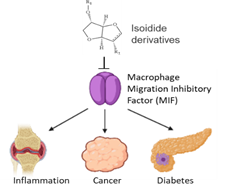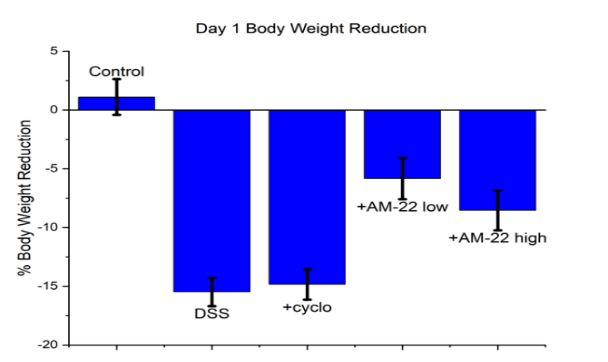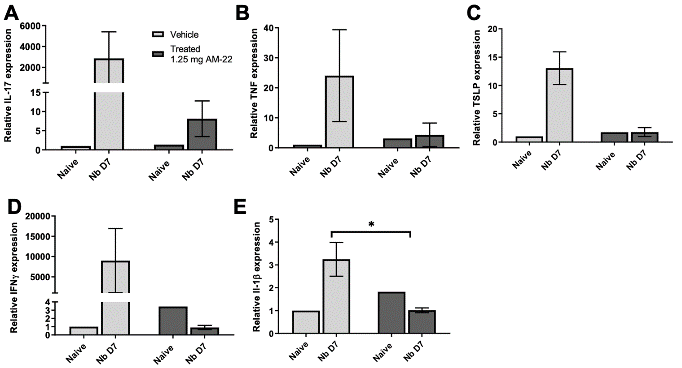
Small molecules targeting to the inflammatory cytokine MIF could be a treatment for various diseases
Invention Summary:
A wide range of diseases can be addressed by targeting inflammatory cytokines. Although there are monoclonal antibody drugs that target, e. g., Tumor Necrosis Factor (TNF), no orally administrable small molecule inhibitor of inflammatory cytokines is presently available to meet medical and market needs.
Rutgers scientists have identified new isoidide derivatives as inhibitors of Macrophage Migration Inhibitory Factor (MIF). The molecules suppress TNF and/or IL1β secretion from peripheral blood mononuclear cells, and reduce injury in mouse models of inflammation.

The isoidide derivative AM-22 ameliorate Intestinal Bowl Disease (IBD) symptom in a mouse model. C57BL/6 mice were treated with vehicle control, DSS, cyclosporin-A(Positive control), DSS+AM-22(20mg/kg), or DSS+AM-22(100mg/kg). Body weight measure shows reduced weight loss with AM-22 administration.

AM-22 reduces intestinal pro-inflammatory cytokine production in response to nematode infection. C57BL/6 mice were treated with vehicle or 1.25 mg AM-22 on day 2,4 and 6 post-infection with Nippostrongylus brasiliensis (Nb). Real-time PCR shows decreased pro-inflammatory cytokine expression in intestinal homogenates after 7 days post-infection: (A) IL-17, (B) TNF, (C) TSLP, (D) IFNg, (E) IL-1b.
Advantages:
- Good water solubility
- Favorable permeability properties
- Orally available
Market Applications:
- Inflammation diseases such as arthritis, inflammatory bowel diseases, psoriasis
- Prostate cancer
- Diabetes
Intellectual Property & Development Status:
- Issued patent: US 10,815,244
- Available for licensing and/or research collaboration